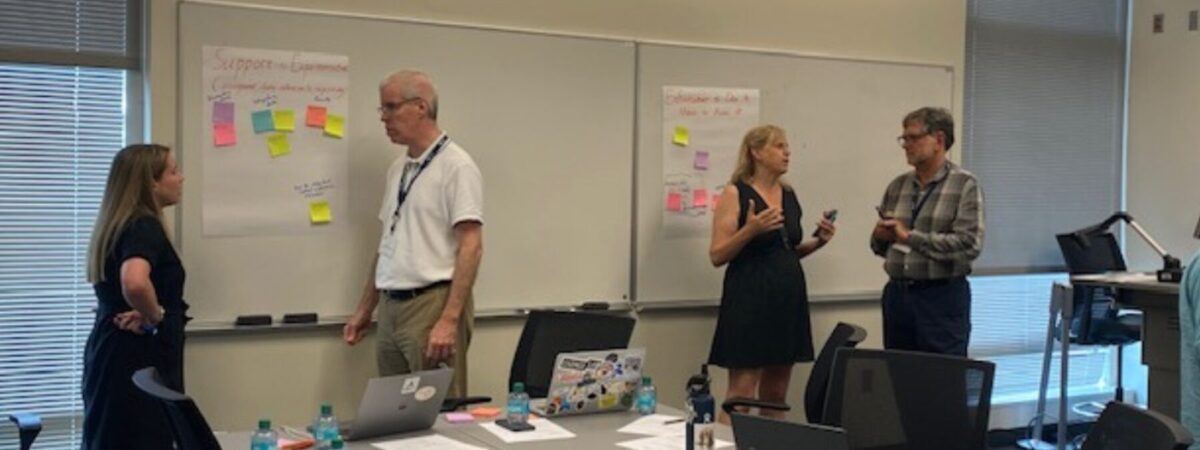With support from the Institute of Education Sciences (IES), SEERNet is pleased to welcome six research teams to the network. The funded projects reflect a diversity of research agendas and practical relevance, focusing on enhancing student learning through Digital Learning Platforms (DLPs). Study populations range from elementary to postsecondary, with research questions ranging from examining the impact of perceptual cues on math problem solving skills, supporting metacognition, designing math items to support proportional reasoning, addressing differences in course taking patterns and degree persistence between online vs. on-campus programs, reducing academic procrastination, and investigating how digital tools benefit self-regulated learning. The projects also reflect a range of methodological approaches, including experimental designs, multiple sequential studies, use of mixed methods, and exploring individual learner differences. In this blog post, you’ll learn more about the history of the SEERNet research network and these new research projects.
History of the Research Network
Now more than ever before, learning happens online. And where learning is happening, there’s data. In 2022, Digital Promise was selected by the Institute of Education Sciences, the research division of the US Department of Education, to lead a rapidly growing conversation about how researchers can leverage the data that’s gathered in digital learning platforms (DLPs), in the educational experiences with the platforms learners already use, to better understand what works, for whom, and under what conditions. Digital Promise, with partners at Empirical Education, formed the network hub, SEERNet, to bring together IES funded digital learning platforms, researchers, and practitioners to define a new generation of learning sciences research.
When the network was formed in 2022, five digital learning platforms were also awarded by IES to develop the infrastructure needed to connect researchers to millions of teachers and learners across K-12 schools and post-secondary institutions in the United States: ASSISTment’s E-TRIALS, MATHia/UpGrade, Canvas + Terracotta, Kinetic by OpenStax, and ASU Learning @ Scale. Over the past two years, the network has developed a knowledge base for conducting research in digital learning platforms that reflects the Standards for Excellence in Education Research (the “SEER” standards after which the network was named). We are excited to see these concepts put into action as researchers join the network.
Introducing the Researchers
To date, IES has awarded six research teams to become a part of SEERNet, one awarded in 2023 (Closser), one awarded in January 2024 (Zepeda) and additional four just awarded in September 2024.
- Now I See It: Supporting Flexible Problem Solving in Mathematics through Perceptual Scaffolding in ASSISTments: Led by Avery Closser at University of Florida and David Purpura at Purdue University, this study is using the ASSISTments platform to explore whether perceptual cues can help students practice more flexible and efficient math problem solving skills.
- Investigating the Impact of Metacognitive Supports on Students’ Mathematics Knowledge and Motivation in MATHia: Led by Cristina Zepeda and Kelley Durkin at Vanderbilt University, this study is exploring the effects of evidence-based enhancements implemented during mathematics problem solving in UpGrade/MATHia on middle school students’ metacognitive skills, mathematics knowledge, and motivation.
- The Educational Divide: Transition, Retention, and Course Selection in Digital and On-Campus Immersion Students: Led by Burhan Ogut at American Institutes for Research, this study will use the ASU Learning at Scale (L@S) platform to examine differences in course taking and degree persistence between the online and on-campus programs at Arizona State University.
- Effects of Enhanced Representations in Digital Mathematics Practice Items: Led by Michele Carney at Boise State University, this study will use ASSISTments/E-TRIALS to explore how to improve the design of practice items so that they better support students’ conceptual and procedural knowledge of proportional reasoning.
- A Multipronged Approach to Small-Teaching Interventions for Reducing Academic Procrastination: A Randomized Control Study via Terracotta: Led by Akira Mikaye at University of Colorado, Boulder, this study will work with the Terracotta platform team to develop and test interventions for postsecondary academic procrastination, which will be implemented within the Canvas learning management system.
- Examining the Relationship Between Individual Characteristics and Self-Regulated Learning Across Multiple OpenStax Courses: Led by Ryan Baker at University of Pennsylvania, this study will work with the OpenStax/Kinetic platform team to explore why interactive tools like digital highlighters and note-taking tools for digital textbooks support comprehension and knowledge retention for some learners but not others, and then use this information to design scaffolds to help students self-regulate their learning and experience the benefits of these interactive tools.
Each of these teams will not only develop [knowledge in their research] but will also play a vital role in advancing the field in the use of digital learning platforms for learning sciences research to drive innovation and evidence-based practices in education.
Want to know more about SEERNet?
We invite you to join the movement of researchers, practitioners, and platform developers exploring new frontiers of learning sciences research in the platforms learners leverage every day. Find more information here:
